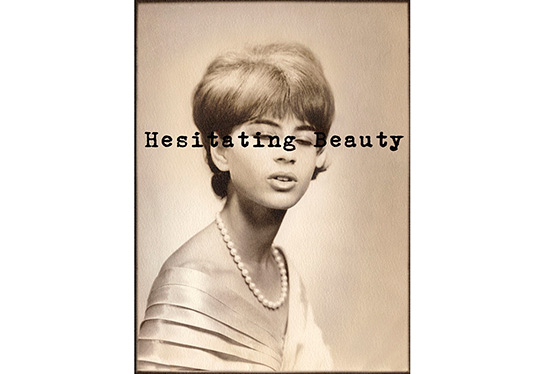Review: Hesitating Beauty by Joshua Lutz

“Holding on so tightly to what I believed was sanity while consumed by fear of depression and schizophrenia prevented me from being fully present to her reality.” writes Joshua Lutz in the introduction of Hesitating Beauty, a book in which the artist comes to terms with his mother’s mental illness. Mental illness is the final frontier that cannot be crossed willingly. Comprehension is not to be had, as hard as one might try. There literally is nothing there to understand. The rules that govern our lives cease to exist, or at least are bent so much out of shape that they don’t make sense any longer, at least in our world.
How can photographs possibly deal with something like that? Photographs, we believe, show things that exist. They show people and their expressions of mental states (which are very different from those states themselves). But this ability to show some things, this inability to show other things, is the medium’s greatest strength. Photography is unthinkable without uncertainty. Photographs show much less than what we want them to show. That’s why we give them captions, that’s why we place them next to each other: photographs usually don’t show what we want them to show.
Lutz makes use of this simple fact by embracing, instead of rejecting or fighting against, photographic ambiguity. Combining archival photographs along with his own, Hesitating Beauty describes a world that language cannot adequately talk about, a world that our (sane) brains cannot comprehend. There is the surface of that world, that, which we can see (a hand holding onto a hospital gurney, say), and there is the transformed surface, the photograph from a family album, which has long ceased to be just that, to, instead, become a collection of feelings and associations more than the literal object, the photograph.
In addition, Hesitating Beauty contains snippets of text whose sources are not always completely obvious. Embracing what he is doing with the photographs, Lutz uses the same mechanisms for the writing, in a way that I have not seen used very often by visual artists. The end result, the book, is haunting, disturbing, and sad, a book one finds oneself coming back to because despite all those attributes there also is a form of beauty, a hint of salvation (if you will forgive the religious term).
If anything, mental illness begs for our compassion, for our willingness to engage, in whatever way, and for our attempt to realize that full understanding is not to be had. A small, intimate book, Hesitating Beauty pushes the boundaries of what a photobook can do when its maker understands what photographs can do, and what they cannot do. One is almost tempted to say that the book proves Wittgenstein’s famous dictum wrong: “Whereof one cannot speak, thereof one must be silent.” No, there are ways.
Highly recommended.
Hesitating Beauty; photographs and text by Joshua Lutz; 96 pages; Schilt Publishing; 2012